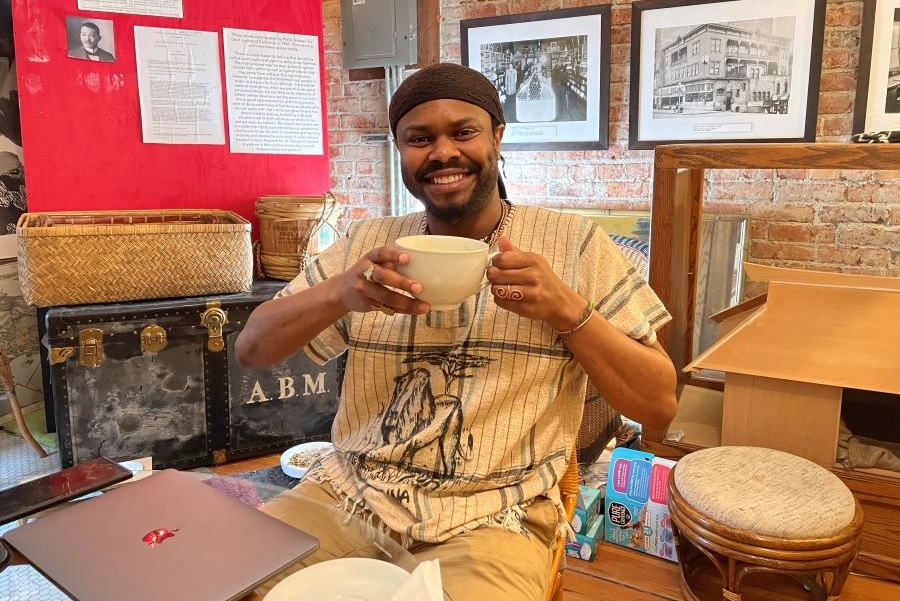Homelessness Need Not Have the Last Word
At some point while living in his Dodge Dart, wondering when he’d experience the comfort of a four-walled domicile again, Marjhiq Ali of Seattle made a startling discovery about homelessness—it can’t beat him. Knock him down with the force of a Mike Tyson uppercut? Yes. Hurl him through a spin cycle of emotions? Sure. Leave him in a hopeless state of inertia? Not a chance.
One day while renting a single-family-home room in the nation’s fourth-hottest housing market, Ali got word that his landlord was going to pounce on an offer for the place—pounce as in you tenants have one week to move out of here. Unable to secure another place in a week (who could?), Ali lived in his Dodge Dart for a couple of months. That’s when the bounce back began.
Ali turned to a few people he knew at United Way of King County, who steered him toward Streets to Home, a United Way program that helps set people experiencing homelessness on a path of upward mobility by quickly getting them into housing and connecting them with employment. While taking showers at the YMCA, he began weight training, which helped reduce stress. While parked in a safe lot for two months, Ali worked at Starbucks and DoorDash, and his conversations with customers fueled his need for socialization.
Meditation and determination to get back on his feet steadied Ali until he found not only a new home but a new, full-time job at Green River College as the Black Student Success Coordinator for the Office of Diversity, Equity and Inclusion. He’s also applied for a graduate school program at the University of Washington. Bent, but not broken, Ali epitomizes resilience; if failure was looking to defeat someone, it picked the wrong person.
“I’m not afraid of [homelessness] anymore,” said Ali during a recent interview at Seattle’s Panama Hotel Tea & Coffee House, not far from where he lives. “I hope it never happens again. But that experience did a few things for me. What’s the word? Solitude—there was a lot of meditation that went into it.”
“I’m grateful that I did have a car. But the amount of energy that I put into not wanting to be in my car was enough for me not to remain in my car,” Ali added. “I like to think that connecting with people is one of the best things you can do in life, creating those relationships is not just a professional thing.”
“Creating networks is a personal thing as well. Even when I wasn’t working full time, I was working at Starbucks, connecting with customers. Having a friendly energy about my situation. There were sometimes when I knew I wasn’t smelling the best, and I was taking showers at the YMCA, but they were closed on the weekends. Sometimes I had to go to work and do the thing and just hoped [the Friday shower] could last until Monday morning.”
Streets to Home helped buoy Ali’s resilience. United Way community impact manager Wayne Wilson said that during fiscal year 2022 (July 1, 2021-June 30, 2022), Streets to Home has enabled 539 households to receive permanent housing with sufficient employment income to maintain that housing. And 95% of those who receive Streets to Home services are still housed six months later.
“Streets to Home has been one of the flagship programs of United Way for nearly seven years,” Wilson added, “because it reaches people who are actually homeless—those who live on the street, those who live in cars and those who occupy shelters each and every night.”
[Streets to Home] reaches people who are actually homeless—those who live on the street, those who live in cars and those who occupy shelters each and every night
Wayne Wilson, United Way of King County community impact manager
Ali said that he was determined to find the services he needed to overcome homelessness, and he added that without Streets to Home, “It wouldn’t have gone as good as it did. Just the knowledge and the confidence, especially at that time during COVID. And at the time, there was a lot of money out there and different programs that were opening up for people who are teeter tottering on the line. I’m not going to say it was a perfect time to be homeless, but if there had been any other time it would have been more difficult.”
Ali says that he has learned from both the lows of experiencing homelessness and the highs that have come with triumphing over it. For someone who is currently experiencing homelessness and seeking to overcome it, he says, “Stay brave. Stay up to date on the different forces that are available. And if they do believe in some amazing force outside of time, work with that force.”




Comments